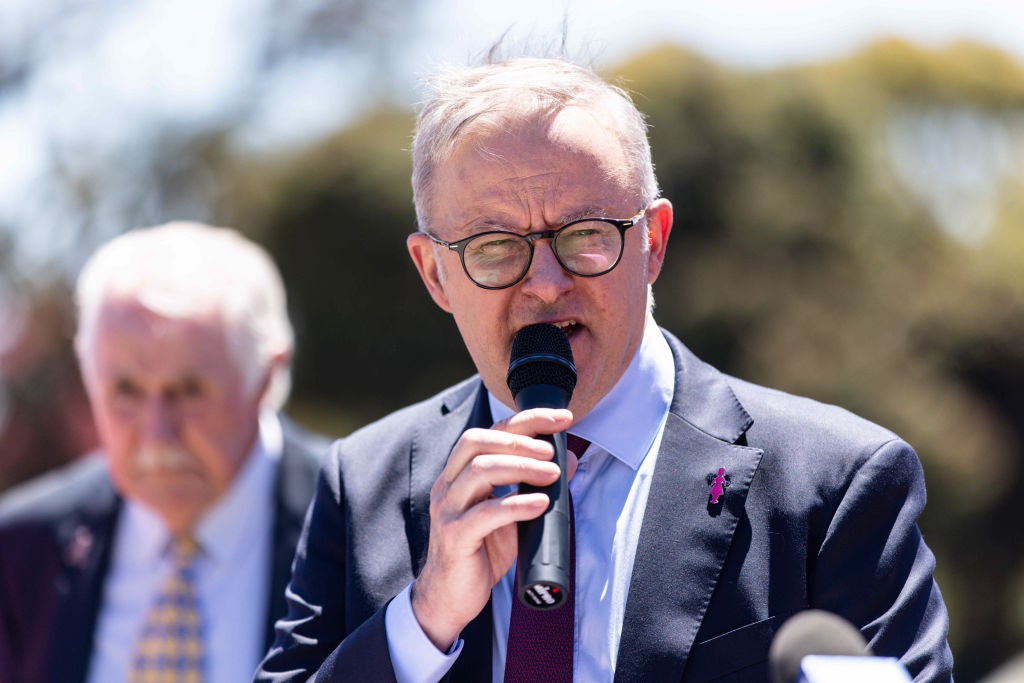Australia plans to unveil a multibillion-dollar green subsidies package to rival those of the US and the EU as it looks to boost domestic clean energy production.
The Albanese government will soon launch a subsidies and incentives initiative similar to the US $370bn Inflation Reduction Act (IRA) and the EU’s Green Deal, according to the Australian Financial Review.
In a speech delivered in Newcastle on Friday evening, Prime Minister Anthony Albanese argued that if Australia is to become a renewable energy superpower, “the government has to be a partner in this, not just an observer”.
“You can see that in the unprecedented investments the US and the EU and Japan and Korea are making in their industrial bases,” he said. “We don’t have to go dollar-for-dollar in our spending, but we can go toe-to-toe on the quality and impact of our policies. In all of this, we must be prepared to think big.”
Sources say the scheme is likely to be a combination of subsidies and co-investment, and will aim to redirect clean energy capital from the US to Australia.
Mining billionaire Andrew Forrest, who also owns Australian renewables company Squadron Energy, has previously pressured the government to provide more support for the country’s domestic energy transition. He has argued that Australia should join forces with countries such as Japan and Germany to compete with the IRA.
Since taking office, Albanese’s Labour Government has launched the $15bn (A$22.89bn) National Reconstruction Fund, an off-budget facility to provide finance in the form of debt, equity and guarantees across key areas of the economy and industry.
It has also boosted funds flowing into the Hydrogen Headstart programme, which was inherited from the previous government, and has turned its focus to bolstering the domestic development of critical minerals.
Last week, the government moved to add nickel to its official list of critical minerals in an effort to support the industry, which is facing a global crisis. The country's own nickel sector is facing thousands of job cuts after a jump in Indonesian supply saw prices plunge 40% in a year, with several major miners already pulling out of nickel operations or limiting activity.









